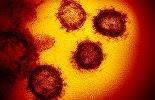
Researchers Investigating Why Coronavirus Appears To Largely Spare Children.
The Washington Post (3/10) reports, “One of the few mercies of the spreading coronavirus is that it leaves young children virtually untouched – a mystery virologists say may hold vital clues as to how the virus works.” According to the WHO, only 2.4 percent of cases reported in China were in children and only 0.2 percent of cases involved critically ill children. The article quotes virologists discussing how the virus differs from many others that can be particularly dangerous for young children as well as the elderly.
The Wall Street Journal (3/10, Subscription Publication) reports that while few children appear to become sick from the virus, they may play a role in transmitting it, so it’s still important to reduce their exposure to the pathogen, according to experts.
COVID-19 (Novel Coronavirus)
We can all do our part to keep the community healthy and safe. Learn more about symptoms and how to stop the spread.
COVID-19: What You Need to Know
The COVID-19 outbreak, explained
By now you have probably seen the news about a novel coronavirus that began in China and has spread to several other countries. The Centers for Disease Control and Prevention (CDC) is closely monitoring the situation and providing frequent updates. Below are some common questions about the illness, including symptoms to watch for and how to prevent it.
What is COVID-19?
Coronaviruses are a family of viruses that commonly affect animals but sometimes infect humans too. They usually attack the upper respiratory tract—nose, sinuses and throat. A coronavirus gets its name from the crown-like spikes on its surface, visible under a microscope (“corona” means crown in Latin). Some types of coronavirus cause mild symptoms like the common cold, while others, like SARS or MERS, are more dangerous.
Scientists are still learning about this new coronavirus that causes a disease known as COVID-19. Called “novel” because it's never been seen before, it is thought to have originated at an animal market in Wuhan, China.
What are the symptoms of COVID-19?
Reported symptoms of COVID-19 have ranged from very mild to severe and even fatal. Most COVID-19 infections in healthy children are mild and do not require hospital care.
Signs of COVID-19 can include:
- Difficulty breathing
- Shortness of breath from continued coughing
- Refusing liquids with decreased urine frequency
- Crying without ability to be consoled
- Fever that is not responsive to fever-reducing medications
- Persistent behavior that is not normal for your child
When should my child see a doctor?
Most children with COVID-19 infections have mild symptoms and do not require hospital care. If your child has concerning symptoms, call your doctor or pediatrician to discuss next steps before going to a hospital, Emergency Department or urgent care. We need to direct your arrival into our facility to avoid exposures.
If your child is in respiratory distress, call 911 or bring them to the closest emergency room.
Can I bring my child to Children's to get tested?
Currently, diagnostic testing for COVID-19 infections is performed at the discretion of the Georgia Department of Public Health (GDPH) and CDC only. Children's is not performing testing for COVID-19 infections.
How is COVID-19 spread?
Like the cold or flu, COVID-19 usually spreads from close person-to-person contact—about six feet—through respiratory droplets from coughs or sneezes. The virus may also spread when droplets land on surfaces that people touch.
How can I prevent COVID-19?
There is currently no vaccine to prevent COVID-19, so the best way to avoid infection is to avoid exposure. It is always a good idea to keep your guard up—and not just against this virus. “While the novel coronavirus is concerning, it is important to remember that seasonal flu is responsible for millions of infections and thousands of deaths in adults and children each year. The flu can be prevented by getting a vaccine each year, and remember, it's never too late to get a flu shot,” says Andrea Shane, MD, MPH, System Medical Director of Infectious Diseases at Children’s Healthcare of Atlanta.
Here are other simple steps you can take to lower your risk of catching or spreading illness.
- Wash your hands often with soap and water for at least 20 seconds. If soap and water are not available, use an alcohol-based hand sanitizer.
- Avoid touching your eyes, nose and mouth with unwashed hands.
- Cover your cough or sneeze with a tissue, then throw the tissue in the trash. Wash your hands or use alcohol-based hand sanitizer after touching tissues. If you don't have a tissue, cough or sneeze into your elbow.
- Clean and disinfect frequently touched objects and surfaces to help prevent the spread of germs.
- Avoid close contact with people who are sick.
- Stay home if you are sick, unless you or your child needs medical care.
- A person with respiratory illness and fever is probably contagious to others until the fever is gone for 24 hours WITHOUT fever meds and the individual feels well AND cough is diminished and coverable even though not completely gone.
For those who plan to travel, the CDC offers specific guidance about avoiding COVID-19.
As public health agencies closely monitor the outbreak, know that Children’s is ready to support the diagnosis and management of children in the event a child presents with a known or suspected COVID-19 infection.
Children's has the appropriate personal protective equipment, plans for location management and a team of staff trained to care for children who may have infections with special pathogens—such as suspected COVID-19 infections—should they require clinical care.
